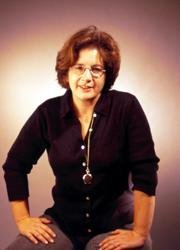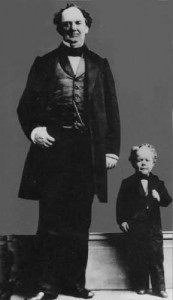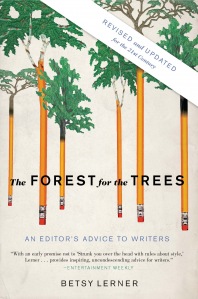Publishing Talks: David Wilk Interviews Betsy Lerner
December 9, 2010 by David
Filed under Publishing History, PublishingTalks, The Future
 In this series of interviews, called Publishing Talks, I have been talking to book industry professionals and other smart people about the future of publishing, books, and culture. This is a period of disruption and change for all media businesses. We must wonder now, how will publishing evolve as our culture is affected by technology, climate change, population density, and the ebb and flow of civilization and economics?
In this series of interviews, called Publishing Talks, I have been talking to book industry professionals and other smart people about the future of publishing, books, and culture. This is a period of disruption and change for all media businesses. We must wonder now, how will publishing evolve as our culture is affected by technology, climate change, population density, and the ebb and flow of civilization and economics?
I hope these Publishing Talks conversations will help us understand the outlines of what is happening, and how we might ourselves interact with and influence the future of publishing as it unfolds.
These interviews give people in and around the book business a chance to talk openly about ideas and concerns that are often only talked about “around the water cooler,” at industry conventions and events, and in emails between friends and they give people inside and outside the book industry a chance to hear first hand some of the most interesting and challenging thoughts, ideas and concepts being discussed by people in the book business.
A few weeks ago I read a piece by Betsy Lerner in Publishing Perspectives, the excellent online newsletter about the publishing business edited by Ed Nawotka. It was called “Should I Tweet” and was adapted from the new updated edition of Betsy’s book “The Forest for the Trees: An Editor’s Advice for Writers.” It’s a great piece, that says some important things about marketing and publishing aimed at writers (but good for everyone else in publishing to read too), and instantly made me want to talk to her (and buy her book). This little quote from near the end of the essay really grabbed me:
“I’m not saying that everyone can or should be creating a personal literary dynasty, but it’s essential for authors to be thinking about how to market themselves. Always has been. Sometimes they cry, “but I’m no good at marketing,” or “Isn’t that the publisher’s job?” I think publishers should help authors think about what they can do early on in the process, whether it’s creating a blog, developing mailing lists, or getting speaking engagements lined up. If you’re lucky enough to be signed up without a platform, start working on one! Marketing and selling books is not for the faint of heart. Whitman knew that. Palahniuk knows it. Jay Conrad Levinson preaches it.
But no one knew it better than P.T. Barnum, “Without promotion something terrible happens,” he said. “Nothing!”
Betsy is herself of course, a terrific writer, as well as being a successful agent. I admire her blog, where she extends the work she did in The Forest for the Trees. She is funny and smart, entertaining and instructive, and obviously talented. Her opinions are definitely worth knowing, and her advice for writers is always great stuff. She’s a poet, and was for many years a successful commercial editor, and then became an agent with a great list of client writers; she is a partner at the Dunow, Carlson and Lerner Literary Agency. She wrote another book called Food and Loathing about her issues with eating and depression. She received an MFA from Columbia University in Poetry and was the recipient of a Thomas Wolfe Poetry Prize, an Academy of American Poets Poetry Prize, and was one of PEN’s Emerging Writers in 1987. She also received the Tony Godwin Publishing Prize for Editors Under 35. And Betsy also gives talks on every aspect of the publishing process from her perspective as a writer, former editor and agent.
We had a great conversation about books, publishing and marketing, during which I learned a few things and gained some valuable insights. A key point she makes is how important it is for writers to understand their role in the publishing process. While we are certainly in a period of heightened difficulties, the challenges writers (and publishers) face today are really not that different from what they have always been. The specific tools we use may change, but the principles of marketing books remain the same. Writers are in fact entrepreneurs, and not just “writers” and they must always be engaged in the public process of publishing, in a measure most likely equal to their own actual abilities. And she also reminds us of the central matter: that the quality of the work must always be the focus of everything. Everything else is secondary.
After talking to Betsy, I’m now looking forward to reading The Forest for the Trees – and sooner rather than later.
Podcast: Play in new window | Download
